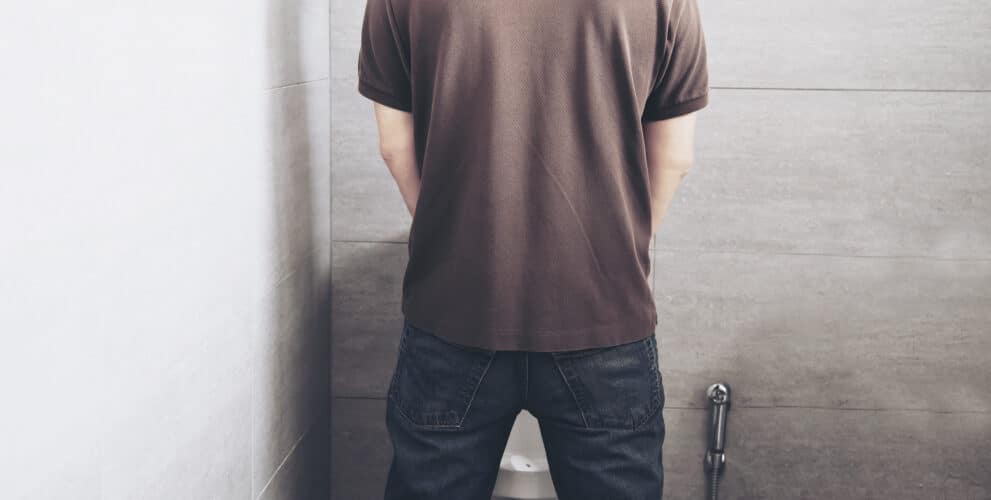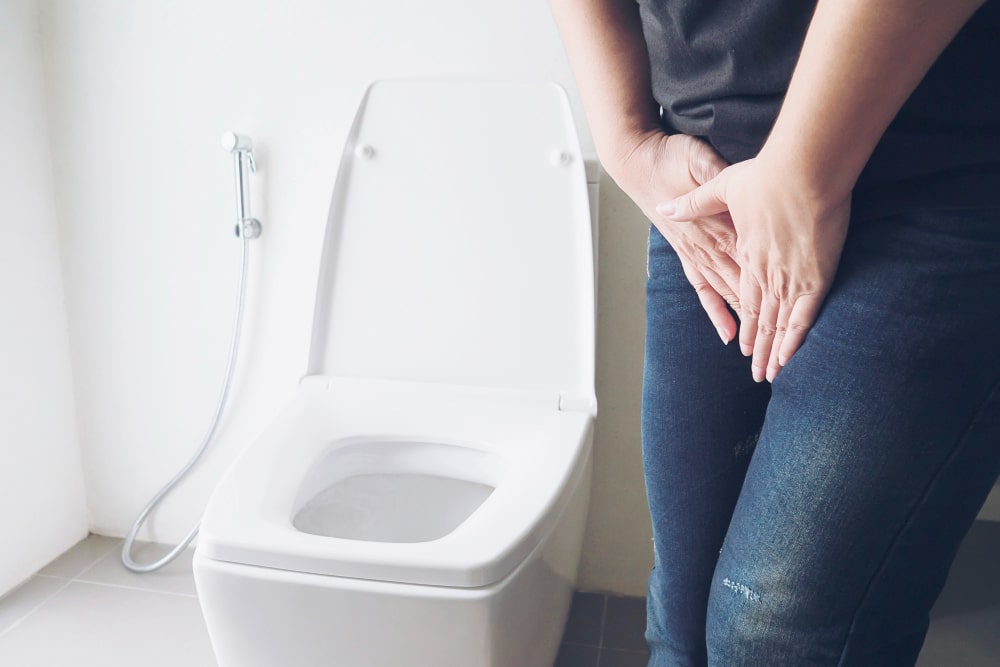Fact Check: Does urinating while standing cause prostate cancer in men?
Studies show that sitting may slightly improve bladder emptying in men with urinary issues, but posture has no significant effect on prostate health
Author
Author
- admin / 2 months

- 0
- 5 min read

Author
CLAIM: Urinating while standing prevents the bladder from emptying completely, leading to prostate problems, sexual weakness, and even prostate cancer in men.
FACT: There is no scientific evidence that urinating while standing causes prostate cancer. Studies show that sitting may slightly improve bladder emptying in men with urinary issues, but for healthy men, posture has no significant effect on prostate health. Experts emphasise that age, family history, and lifestyle are the main risk factors for prostate cancer.
If you’re someone who believes that sitting or standing while urinating could make a difference to your health, you might want to take a closer look at what science says.
A viral video by Acharya Manish, which has over 1 million views on Facebook, has sparked debate about whether standing while urinating can cause prostate problems or even prostate cancer.
According to his official website, Acharya Manish is the founder of the Hospital and Institute of Integrated Medical Sciences and describes himself as “an Ayurvedic practitioner and motivational speaker who emphasises prevention rather than cure.”
In the video, he claims that standing up to urinate prevents the bladder from emptying completely, which, he says, leads to prostate issues, sexual weakness, and even prostate cancer. He further argues that “our ancestors sat while urinating and never had these problems,” blaming the British for introducing the habit of standing and “ruining India’s health traditions.”
The video, which has drawn over 6,600 likes and numerous comments, has left many viewers questioning whether there is any truth to this claim. Amid the growing online discussion, a First Check reader reached out to us over our WhatsApp tipline, asking: Does urinating while standing really cause prostate cancer in men?
So, does urinating while standing cause prostate cancer in men?
There is no scientific evidence linking urinating while standing to prostate cancer, sexual dysfunction, or infertility in men. However, research has explored how different urination positions, standing or sitting, affect bladder emptying and urinary flow, especially in men with urinary issues.

A 2014 meta-analysis published in PLOS ONE conducted a systematic review across 14 medical databases to compare urodynamic parameters in standing versus sitting positions. The study included 11 articles and stratified participants into two groups: healthy men and those with lower urinary tract symptoms (LUTS). It found that “in men with LUTS, a significantly lower PVR was shown in sitting position compared to standing.” In simpler terms, men with urinary difficulties emptied their bladders more completely when sitting. For healthy men, however, “no difference is found in any of the urodynamic parameters,” meaning that whether they stood or sat had no measurable impact on bladder function.
Another 2020 study evaluated 36 men with symptomatic benign prostatic hyperplasia (BPH) to determine how urination posture affects flow rates and residual urine volume. The findings showed that “the mean maximum flow rate (Qmax) was significantly better in sitting than in a standing position.” However, other parameters like average flow rate, voiding time, and post-void residual volume were not significantly different between the two positions. The researchers concluded that “the sitting position had better Qmax than standing,” and that combining a sitting posture with other BPH management methods “might give a synergistic effect that improves urinary flow in men with BPH.”
Similarly, a 2022 study investigated urination positions among children aged 5 to 15 years, including both boys and girls with and without voiding dysfunction. The study revealed that “girls with voiding dysfunction presented a significantly higher postvoid residual volume in squatting position compared to sitting position,” while healthy boys presented a “significantly higher Qmax in standing position compared to sitting and squatting positions.”
Overall, participants showed better urinary patterns in their habitual urination positions, suggesting that comfort and habit play a major role in optimal bladder emptying. The study concluded that “urination position may affect uroflowmetry results; however, its impact on lower urinary tract function requires further research.”
What the experts say
Dr Rajeev Sood, Chairman – Urology & Renal Transplantation at Marengo Asia Hospitals, explained that if one is a healthy man without urinary symptoms, peeing whether you stand or sit, does not pose a prostate cancer risk.
For men with an enlarged prostate or urinary flow issues, Dr Sood said, doctors may discuss posture as part of symptom management. “In some cases, sitting may help improve bladder emptying and reduce residual urine,” he noted.
Dr Sood emphasised that the major risk factors for prostate cancer continue to be “age, family history, ethnicity, and lifestyle factors such as diet and obesity.” Posture during urination, he said, “is not among the known risk factors.”
He also advised that men who experience urinary symptoms—such as a weak stream, frequent nighttime urination, or the feeling that the bladder isn’t fully empty—should seek medical evaluation. “The focus should be on identifying and treating the underlying prostate or bladder condition, not on whether you stood or sat while urinating,” he said.
Also read: Fact-Check: Can men’s poor hygiene during urination lead to UTIs in women?
(Do you have a health-related claim that you would like us to fact-check? Send it to us, and we will fact-check it for you! You can send it on WhatsApp at +91-9311223141, mail us at hello@firstcheck.in, or click here to submit it online)










